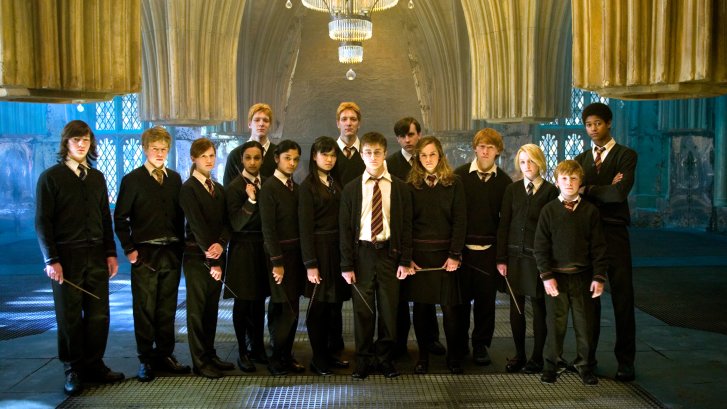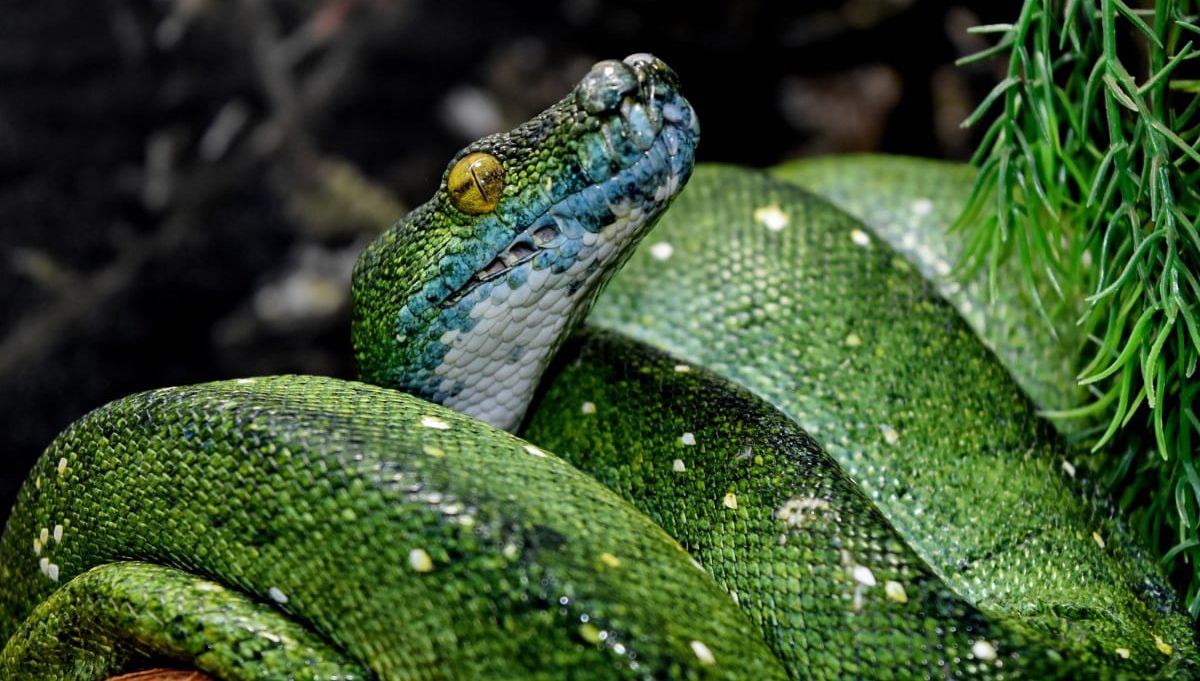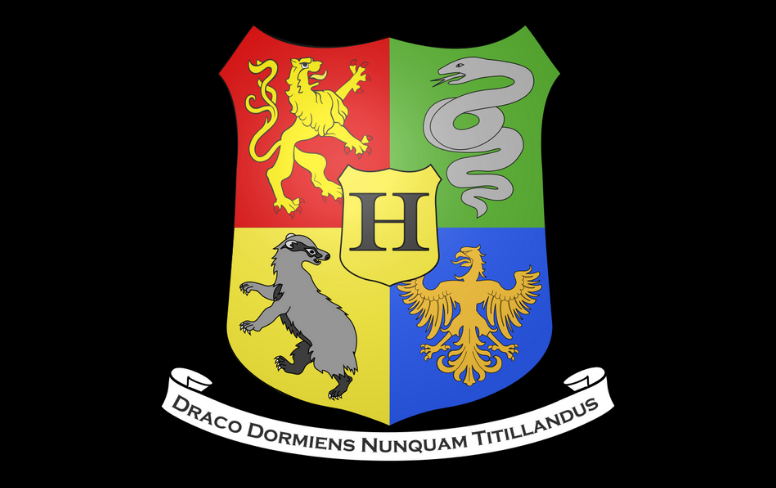Missed Opportunities in the Wizarding Universe: The Hogwarts Houses
August 7, 2019—Over the course of a decade, JK Rowling delivered to us a famous story about a Boy Who Lived in 1,084,170 words. In case you missed that, the Harry Potter series includes well over a million words.
So I want to be clear at the outset of this 4-post blog series that I am not criticizing JKR for storytelling stinginess, and I am quite satisfied with how she chose to use those million+ words.
But as much as was included, much was left out. We all have unanswered questions. We’re all intrigued by aspects of her fictional world that could have been explored more. But there’s only so much a book series can relate.
So allow me to imagine that JK Rowling had had another million words to tell us her stories. How could the series have been shaped differently? What topics could have been developed more deeply? I present a few humble thoughts on how she could have used those extra million words.
Also, all posts will entirely disregard Cursed Child. You have been warned.
There is a moment, almost at the end of Deathly Hallows, when Dumbledore says,”You know, I sometimes think we Sort too soon. . . .”
It’s a throwaway comment, made in the context of a much larger narrative and accompanying information dump, so if it’s easy to overlook as one speeds through the rapid-fire revelations regarding Severus Snape’s life and loyalties.
But it’s an important statement, one that could have been a major theme in the Harry Potter books if JK Rowling had decided to expand beyond Harry’s point of view or given him a more extroverted personality.
The Hogwarts Houses are the primary social constructs around which the school is built, and their students are selected by personality. Here’s a refresher course in how it works:
Hogwarts was founded by four very gifted (and alliterated) witches and wizards sometime in the Middle Ages. Each year, each Founder chose from among the new students which ones he or she wanted to be primarily responsible for teaching. They were all a bit egotistical, so they each chose the students that were most similar to themselves.
Gryffindor chose brave, chivalrous, and daring students—qualities prized in knights. Ravenclaw chose intelligent, studious, and curious students—qualities prized in scholars. Slytherin chose cunning, resourceful, and ambitious Purebloods—qualities prized in politicians. And Hufflepuff (I’m directly quoting the Sorting Hat here) took the rest, though she particularly valued hard work, patience, loyalty, and fair play.
Eventually, the Sorting Hat was created to continue the grand tradition of dividing up 11-year-olds based on teachers’ favoritism, and thus the annual Sorting continues to the day.
(Quick shout-out to Helga Hufflepuff, the only Founder unprejudiced enough to teach any student regardless of his or her similarity to Helga herself.)
But the purpose of this blog post is not to question the wisdom of the Sorting itself. That’s an entirely separate discussion, but if you’re interested, the Sorting Hat itself gives a nice little argument against the merits of the Sorting during its song in Order of the Phoenix.
For good or ill, the students of Hogwarts are Sorted upon their arrivals based on their personalities, so how could the construct of the Houses have been used to greater effect in the Harry Potter stories? With the exception of Gryffindor, we never really got to know the dynamics of the Houses. There’s great potential for fascinating stories when one locks a bunch of students with similar personalities together for seven years.
Yet we hear none of them. Gryffindor House aside (though sometimes included), the school often seems to act as one unit, and when that isn’t the case, the Houses themselves almost always act together, without regard for individual characters and thoughts. The primary exceptions are Dumbledore’s Army in Order of the Phoenix and Luna Lovegood… always.

It’s not surprising that the only times we see hints of individuality in other House members are when their lives intersect with Harry’s. He is, after all, the lens through which we view the Wizarding World. But that doesn’t mean that there weren’t opportunities to explore those whose names Harry never bothered to learn in canon.
Slytherin, in particular, falls victim to this House uniformity. Harry never develops a positive or even cordial relationship with a Slytherin, and so the whole House is judged by the actions of the few he does know: Draco Maloy, his posse, and a few Quidditch players.
But who else is in Slytherin House? What are their gifts, their thoughts, their dreams, their struggles? What sort of situations arise from requiring a bunch of cunning, resourceful, and ambitious Pureblooded* children to spend their formative years together?
I actually imagine that Slytherin House is full of conflict and strife, considering its attributes. I imagine that such wilful personalities would be in constant competition to further their own goals when they clash with others’.
Instead, the books lead us to assume that every single Slytherin has the same goal—Pureblood supremacy—and that all that ambition and cunning is being directed in that direction.
Frankly, I don’t buy it. None of the qualities that make up a Slytherin are inherently bad (except for their willingness to “use any means to achieve their ends,” I suppose), so why is it assumed that Slytherins are, to a man, prejudiced and malicious and violent? It’s a statistical impossibility, if nothing else.
Ravenclaw and, to a lesser extent, Hufflepuff are also underdeveloped, but in an almost opposite manner. Slytherins are made out to possess, always and only, a morally negative version of their House’s characteristics; they are defined almost entirely in the series by their Sorting. Gryffindors, while far less homogenous in their moralities and personalities, also display their House traits almost uniformly.
On the other hand, we barely see any of the signature Hufflepuff and Ravenclaw characteristics in action throughout the series. The Houses as a whole seem to have been given the roles of “average teenagers.”
How would the “average teenager” react to this situation? How would the “average teenager” feel in these circumstances? Gryffindors act like Gryffindors, and Slytherins act like Slytherins. But throughout the series we see very little evidence of the prized Ravenclaw intelligence, studiousness, and curiosity or of the trademark Hufflepuff industriousness, patience, and loyalty. Mostly, we just see them being… not Gryffindors or Slytherins. And I think that would have severely offended the two female Founders if they’d ever read the Harry Potter books.
Harry’s perspective is limited, so we view the four Houses as he sees them. But dividing young students by personality as a plot device could have had the potential for quite a bit more character development, interpersonal conflict, identity crises, and overcoming of prejudices than we were gifted in the series. If we’d had an extra million words, I’d have liked to see it.
*The Sorting Hat specifies in its song in Order of the Phoenix that Slytherin only took Purebloods, so it follows that the Sorting Hat was enchanted to Sort accordingly.
Every post in this series will be accompanied by a pet theory of Taylor’s related to the post’s subject matter.
Theory: The Hogwarts Founders were Animagi.
Think about it: Why, with such a wonderful collection of magical animals as chronicled in Fantastic Beasts and Where to Find Them, were all the House mascots mundane animals (lion, snake, eagle, badger)? Wouldn’t it make sense for the Houses to be represented by magical creatures and beings, as with Ilvermorny?
I believe that all the Founders, each an incredibly gifted witch or wizard by all accounts, were Animagi, and their House mascots were their Animagus forms.

As an extension of this theory, I like to imagine that somewhere in the Slytherin common room is a portrait of Salazar Slytherin in his Animagus form as a snake. He could thereby speak in Parseltongue to his descendants and even tell them about the Chamber of Secrets if he wished without anyone else knowing that one of the Founders was in their midst.

